This course looks at literary and cinematic texts to examine how these texts narrate the encounter between refuges and the sea. Drawing on a handful of secondary material, we will attempt to unpack the political and aesthetic meanings attached to maritime crossings, the ways these narratives engage with legal and affective archives, with the politics of Fortress Europe, but also with the sea as a watery space whose properties both enable and disable the passages in question.
We will therefore look also at how these cultural texts represent the materiality of seawater and the ways refugees inhabit and make use of this highly volatile realm to navigate not only the sea itself but also the bordering practices Europe deploys as it relies on the properties of seawater to enforce borders in places where there are none.
PRIMARY SOURCES
Helon Habila: Travellers (2019)
Omar El Akkad: What Strange Paradise (2021)
Remi Weekes (dir): His House (2020)
Mati Diop (dir.): Atlantics (2019)
Segun Afolabi: “Ezekiel”
SECONDARY SOURCES
Davies, Thom, Arshad Isakjee and Surindar Dhesi. “Violent Inaction: The Necropolitical
Experience of Refugees in Europe.” Antipode, 2017, 49:5, pp. 1263-1284.
Dickson, Andonea Jon. “Mobility control in ungovernable spaces: Cultivating the
Mediterranean’s fatal materiality.” EPC: Politics and Space, 39:5, 2021, pp. 993-1010.
Heller, Charles and Lorenzo Pezzani. “Liquid Traces: Investigating the Deaths of Migrants at the
EU’s Maritime Frontier.” Nicholas de Genova (ed.). The Borders of ‘Europe’: Autonomy of Migration, Tactics of Bordering. London and Durhma: Duke University Press, 2017.
Pugliese, Joseph. “Technologies of Extraterritorialization, Statist Visuality and Irregular Migrants and Refugees.” Griffith Law Review, 2013, 22:3, pp. 571-597.
Rygiel, Kim. “Dying to live: migrant deaths and citizenship politics along European borders:
transgressions, disruptions, and mobilizations.” Citizenship Studies, 2016, 20:5, pp. 545-560.
Tamalet, Edwige. “Seawater.” Contemporary French and Francophone Studies, 2021, 25:2, pp. 207-217.
Up to 10 T4EU students
Duration: Blocked seminar on following Fridays: 25 Oct.; 15 Nov.; 29 Nov.; 6 Dec.; 13 Dec
Time: 2 pm. – 6 pm.
ECTS: 8
Application Course (AC): Students apply knowledge to gain experience and generate societal transformative impact in limited scope.
Lecturer: Ewa Macura-Nnamdi


